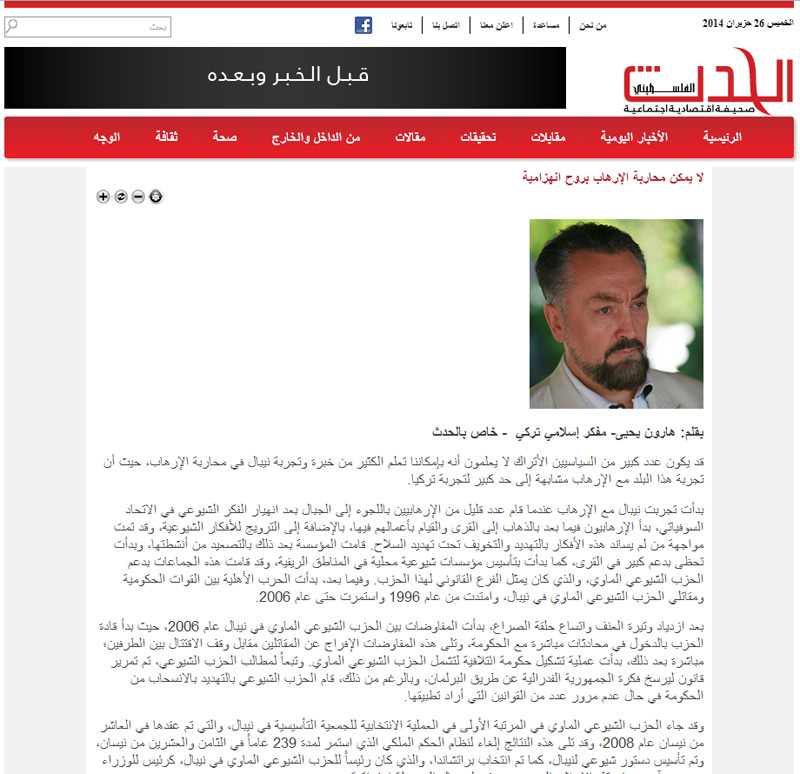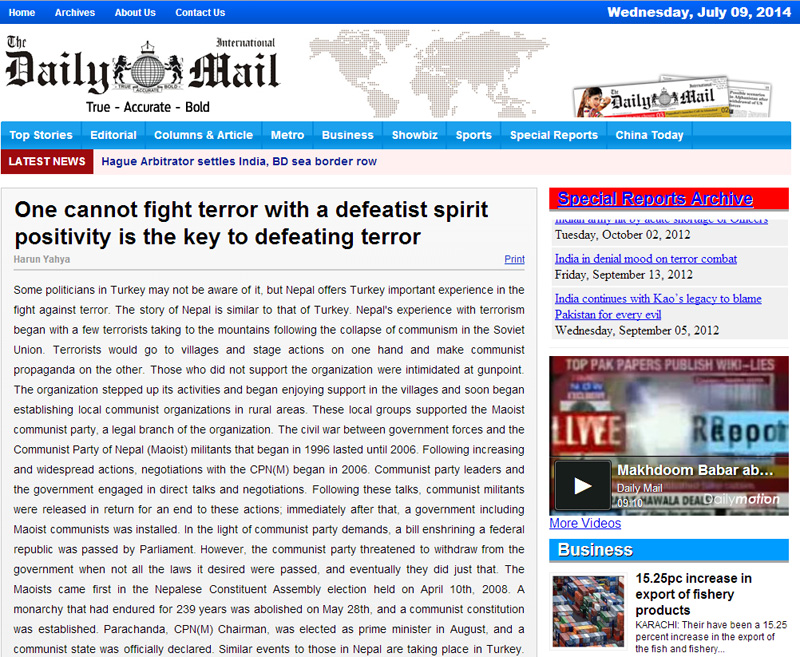

Some politicians in Turkey may not be aware of it, but Nepal offers Turkey important experience in the fight against terror. The story of Nepal is similar to that of Turkey.
Nepal’s experience with terrorism began with a few terrorists taking to the mountains following the collapse of communism in the Soviet Union. Terrorists would go to villages and stage actions on one hand and make communist propaganda on the other. Those who did not support the organization were intimidated at gunpoint. The organization stepped up its activities and began enjoying support in the villages and soon began establishing local communist organizations in rural areas. These local groups supported the Maoist communist party, a legal branch of the organization. The civil war between government forces and the Communist Party of Nepal (Maoist) militants that began in 1996 lasted until 2006.
Following increasing and widespread actions, negotiations with the CPN(M) began in 2006. Communist party leaders and the government engaged in direct talks and negotiations. Following these talks, communist militants were released in return for an end to these actions; immediately after that, a government including Maoist communists was installed. In the light of communist party demands, a bill enshrining a federal republic was passed by Parliament. However, the communist party threatened to withdraw from the government when not all the laws it desired were passed, and eventually they did just that.
The Maoists came first in the Nepalese Constituent Assembly election held on April 10th, 2008. A monarchy that had endured for 239 years was abolished on May 28th, and a communist constitution was established. Parachanda, CPN(M) Chairman, was elected as prime minister in August, and a communist state was officially declared.
Similar events to those in Nepal are taking place in Turkey. When PKK terror began, some official institutions seriously underestimated the terrorists, calling them a handful of brigands. The state then concentrated on the armed struggle as incidents increased and the terror organization’s pressure on the people began being felt; however, when states rely on armed force alone against communist organizations they lose the struggle. Russia, China, Yugoslavia, Albania, Angola, Sudan, Vietnam, Cuba, Korea, Laos, Cambodia and, of course, Nepal are some of the countries where armed struggle against the communists has failed.
There is a peace process in place in Turkey against the increasing actions on the part of the PKK. All Turkey delightedly welcomes the guns falling silent and the absence of any more martyrs.
However, since there has been no change of mindset in the PKK, since it has not abandoned its Marxist-Leninist ideology, it remains determined in its demand for autonomy. Statements by BDP/HDP officials before and after the local elections revealed that determination. The PKK has a philosophy, and a strategy in the light of that philosophy; that is to build a communist Kurdistan in a region including not only the Southeast of Turkey, but also Syria and Iraq. That strategy is a serious threat to the people of the region and even to world peace. The PKK thinks it has started to achieve step by step what it wants, and is now doing all it can to break the ceasefire and have the state held responsible for it.
The Turkish government and military are trying to eliminate the scourge of terrorism in the country without encouraging violence, yet some politicians and journalists are making efforts that will simply further strengthen the PKK in the region. With their attitudes and statements, these people exhibit a boundless tolerance and understanding in the face of the PKK, which has demonstrated that it has no qualms whatsoever about going so far as to slaughter infants in their cradles. These people are incomprehensibly making defeatist declarations about giving in to the PKK’s demands.
It would most assuredly be irrational to want bloodshed and to see the fighting flare up again. But there are two important things the Turkish government can do if it does not want to end up the same way as Nepal. The first is to prevent the exhibition of a defeatist attitude in the face of the PKK. The second is to initiate an intellectual struggle against the organization’s Marxist-Leninist ideology rather than embarking on an armed response against it.
Adnan Oktar's piece on Al Hadath & Daily Mail:
http://www.alhadath.ps/ar_page.php?id=MUiBL8rhupa947196AfC3LBdWzqu#sthash.idTElMxq.kNf6u0Bt.dpbs
http://www.dailymailnews.com/2014/07/9/columns-articles/1.php


